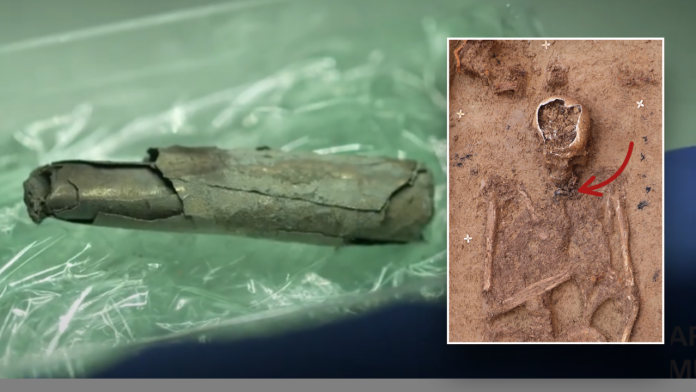Archaeologists recently uncovered the earliest known evidence of Christianity north of Italy, describing it as one of the most significant findings related to early Christianity.
The discovery, referred to as the Frankfurt silver inscription, was made public by the Frankfurt Archaeological Museum. The artifact, consisting of 18 lines in Latin on silver foil, dates back to 230-260 A.D. and was found in a grave in Hesse, Germany.
The inscription starts with an invocation to Saint Titus and Jesus Christ, God’s Son. Saint Titus, a first-century Christian missionary, is mentioned in the text alongside a call for protection for the wearer of the amulet.
The process of decoding the inscription took several weeks due to the foil’s condition, which had to be digitally unrolled using advanced technology. The translation was completed in May, revealing the intricate and purely Christian nature of the inscription.
The museum highlighted the uniqueness of the artifact, as it did not contain references to other beliefs like Judaism or pagan elements, making it a rare find of early Christianity.
The press release praised the inscription as one of the most important pieces of evidence for early Christianity worldwide, as previous discoveries in the region were at least 50 years younger.
The artifact’s significance lies in its contribution to understanding the spread of Christianity and Roman rule in the northern Alpine regions during the late Roman Empire period.




